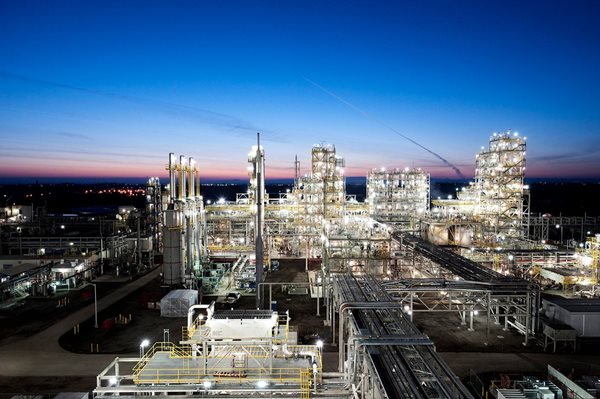From pv magazine USA
REC Silicon and Ferroglobe have signed a memorandum of understanding (MOU) to develop an end-to-end US solar supply chain from raw silicon, to polysilicon, and finally fully assembled modules. Recent investment into REC Silicon by the Hanwha Group, in conjunction with Hanwha’s subsidiary Qcells, was the impetus for the MOU.
REC Silicon is a producer of advanced silicon materials, supplying high-purity polysilicon and silicon gases to the solar industry worldwide, and it was producing silicon in its facility in Moses Lake, Washington, until mid-2019, when China imposed steep tariffs on US-made polysilicon, in retaliation for tariffs imposed on Chinese-made solar panels in 2013.
In the REC Silicon audiocast Q4 2021, CEO James May said that investments by Hanwha in January “improves the company’s liquidity position and is expected to give us the capital necessary to restart the FBR facility in Moses Lake and make targeted investments in and improve our product portfolio in the semiconductor materials segment.” The Moses Lake facility is expected to be operational again in 2023.
Popular content
Ferroglobe is a producer of silicon metal and its alloys and it supplies critical materials for many industrial and consumer products, from silicones to solar power cells, from steel to aluminum to foundry components. The company will be a critical partner in ensuring a steady supply of fully traceable metallurgical grade silicon metal produced in the US from locally sourced raw materials.
In March, Hanwha Solutions, parent corporation of Qcells, announced that it was stepping up efforts to supply customers with “Made-in-America” products when it became the largest shareholder of REC Silicon. Following its initial $160 million acquisition to acquire a 16.67% stake in REC Silicon in January 2022, Hanwha announced that it was acquiring an additional 4.67% stake from Aker Horizons in a deal valued at around $44 million. This investment will help American manufacturers secure the raw material critical to the solar supply chain.
Hanwha’s US initiative supports the Biden administration’s efforts to increase solar power generation by 40% and to decarbonize all electricity by 2035. Hanwha sees the enactment of the Solar Energy Manufacturing Act (SEMA) as critical to a US-based solar supply chain.
This content is protected by copyright and may not be reused. If you want to cooperate with us and would like to reuse some of our content, please contact: editors@pv-magazine.com.



3 comments
By submitting this form you agree to pv magazine using your data for the purposes of publishing your comment.
Your personal data will only be disclosed or otherwise transmitted to third parties for the purposes of spam filtering or if this is necessary for technical maintenance of the website. Any other transfer to third parties will not take place unless this is justified on the basis of applicable data protection regulations or if pv magazine is legally obliged to do so.
You may revoke this consent at any time with effect for the future, in which case your personal data will be deleted immediately. Otherwise, your data will be deleted if pv magazine has processed your request or the purpose of data storage is fulfilled.
Further information on data privacy can be found in our Data Protection Policy.